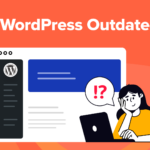Do you want to give your WordPress site all the love and care it needs? A Managed WordPress Hosting environment may be just what you’re looking for!
Oct 2020: We tested all the best WordPress hosts! Find out how we compare.
WordPress is just PHP, MySQL, and JavaScript, so technically speaking, any LAMP (Linux, Apache, MySQL, PHP) stack that meets the WordPress minimum requirements could easily be used to host a WordPress site.
Just because WordPress core is under 12 megabytes, takes less than 5 minutes to install, and runs on LAMP, however, doesn’t mean that it should be treated as a lightweight platform or that hosting should be a minor consideration. WordPress is used to build “real” websites for “real” businesses that need to run on “real” time.

While extending WordPress capabilities with plugins and themes is the fun part and hosting is the necessary part, hosting can also be fun when you understand the benefits of managed WordPress hosting.
If you’re wondering what Managed WordPress Hosting is and whether it’s right or not for hosting your WordPress site, we have you covered in this comprehensive post.
What is Managed WordPress Hosting?
As WordPress now powers over one-third of all CMS websites and is used to build all kinds of websites for large enterprises and small businesses, a number of web hosting providers decided to focus on servicing the WordPress industry. Managed WordPress hosting services, therefore, came about as a result of WordPress becoming the world’s leading CMS platform.
While there are different hosting options available for your WordPress site to choose from, Managed WordPress hosting is a specialized service where the hosting company provides the optimal hosting environment to run a WordPress website and employs WordPress experts to look after all the technical aspects of managing a WordPress site, including performing maintenance tasks like updates and backups, security checks, speed optimization, uptime monitoring, and assisting in areas like troubleshooting, site migration, and scalability.
While a managed WordPress hosting service allows website owners to focus on their business by taking care of and managing their sites, there’s a difference between ‘true’ managed WordPress hosting providers and companies that offer hosting features that mimic the service but don’t offer the same level of WordPress expertise and specialization.
While Managed WordPress hosting can mean different things to different providers, it definitely means only hosting WordPress sites, handling the server administration, optimizing it for WordPress, and doing it all well.
Benefits of Managed WordPress Hosting
When you choose a Managed WordPress hosting service, you’re putting your trust and your website in the hands and care of WordPress experts who truly understand the platform and have the knowledge, experience and the expertise to not only provide technical support and manage your site in the best way possible, but who can also advise you when the time comes to scale your website as you grow your business.
If web hosting is finding a good home for your website, then ideally, your Managed WordPress hosting experience should feel like your website is living in a “5-star” hotel, served by a (pardon the French) retinue and entourage of dedicated WordPress experts.
Key Features of Managed WordPress Hosting
In addition to standard hosting features like reliability, uptime guarantees, reasonable plan pricing and upgrade options, there are a number of key features designed specifically for a WordPress environment that distinguish managed WordPress hosting from other types of web hosting.
These features include the following:
Premium WordPress Support
Everything looks beautiful when it’s all going smoothly. But what happens when something goes wrong?
With managed WordPress hosting, you want dedicated 24/7/365 customer support from highly knowledgeable WordPress experts and specialists who can respond promptly to your requests via live chat, support tickets, or telephone calls, handle all WordPress hosting issues, from migration to security, optimization, scalability, and more, solve problems faster, and give great advice like what type of plugins can impact your site’s performance, etc.
Automated WordPress Updates & Failsafe Backups
WordPress core software, plugins, and themes are constantly being updated (on average, WordPress releases new core updates every three months, though security patches and bug fixes can come out frequently). In a managed hosting environment, your site’s core installation software and plugins should automatically update to the latest versions. Look for automated, done-for-you updates that won’t let your site stay on an old version of WordPress or use outdated plugins.
And don’t forget backups. Backing up your site is almost as important as keeping your heart beating.
Have you ever worked on your site until very late at night with your body fatigued, your mind exhausted and your eyes half closed, and then suddenly jumped up in panic with drool on the side of your mouth when you realized you accidentally wiped out half your site?
Well, I have! Luckily for me, I host my sites on a managed WordPress hosting environment that provides daily website backups, one-click restores, restore points, and off-site backup options, so thankfully, I was able to get my site back in minutes.
Moral of the story: Automatic backups means never losing valuable data or losing valuable sleep over it!
High Performance & WordPress Specific Server Configuration
Managed WordPress hosting environments are typically fine-tuned to work with WordPress out of the box.
A Twitter poll by Kinsta taken by over a hundred WordPress users showed that “performance/uptime” was the overwhelming feature (63%) they value the most in a managed WordPress hosting environment.



Your managed WordPress hosting environment should be optimally configured for efficiency, speed, scalability, and security. It should be developer-friendly and offer access to features like SSL and HTTPS, SFTP and SSH, Git, WP-CLI, and more.
With caching and content delivery networks (CDN), look for server-level caching and/or full page caching (caching is handled by the managed WordPress hosting environment without the need for third-party plugins, so you don’t need to mess around with it), and the option to use a CDN to improve website speed and reduce website loading times wherever visitors are located.
Additional things to look for to improve your site’s speed and performance when choosing managed WordPress hosting include: delivering as many assets as possible from cache during surges of traffic to reduce the load on the server; the latest and best hosting architecture and technologies (the latest versions of PHP 7, MariaDB, HTTP/2 and NGINX, which have all been proven to speed up WordPress); high-performance server settings, using NGINX and PHP optimizations, and strategically located data centers and server clusters with autoscaling, load-balancing, and redundancy options.
Serious WordPress Security
Needless to say, keeping your website secure and protected from hackers, malware, and brute-force attacks is of paramount importance.
Your managed WordPress hosting service provider should take WordPress security very seriously. In addition to implementing active and passive measures to stop or clean up malicious attacks and providing improved security features like disabled PHP functions to prevent hackers from exploiting sites, black-listed and white-listed plugins, software to detect DDoS attacks, hardware firewalls, continuous malware scanning, strong password enforcement, IP blocking, etc., your managed WordPress hosting service provider should be a complete expert in all WordPress and web security prevention and post-attack matters.
One-Click Staging & WordPress Site Migrations
Let’s say you’ve got a busy site with lots of traffic. You then make a change, add a plugin, or change the PHP version of your site and your site suddenly goes down (oops!)
Not a good feeling right?



(Source: Finding Nemo, Pixar Animation Studios)
If you can’t afford for your website to go down, you should be testing, changing, or updating your site on a development site or staging environment, not your production or live site. With managed WordPress hosting, look for one-click staging environments for each WordPress install that allow you to test, implement, and roll out changes to your website quickly, easily, and safely.
Another feature to look for with managed WordPress hosting is easy, simple, and quick site migrations, especially when moving websites from one host to another.



Built For Scalability
Even if your website isn’t getting a lot of traffic yet, sometimes unpredictable events can happen and your site gets an unusual flood of traffic or a traffic spike (e.g. your site gets picked up by the media, a post goes viral, or your site becomes the target of a brute force attack. These types of situations can test your site’s ability to handle high traffic. If your server can’t handle it, it can fall over and send your site offline (which is not a good thing, especially if you’re paying for advertising and sending traffic to a crashed website).
Typically, when you outgrow your server resources, the only option is to switch or upgrade to a higher plan. Normally, you only find this out when you have reached your bandwidth of page view limits and problems start to show up.
With managed WordPress hosting, this is usually handled for you by your providers. You will be notified if you start going over your limits and be given the option to either upgrade easily or have the servers automatically scale your site. This way, your site never gets taken down, you get blazing fast servers even when your website gets a lot of traffic, and you just get charged extra if you go over your bandwidth or page view limits (so feel free to make the news and enjoy tons of publicity!).
You Are Still In Control
Despite the appeal of having everything in a managed WordPress hosting being looked after and done for you, you still want to be in control of your own destiny (or at least your website), so it’s important to have access to hosting features and dev tools like staging area, stencils, and version control, and WordPress-friendly shortcuts in your hosting admin panels, like one-click install, one-click backup restore, and quick access to customer support.
With a managed WordPress hosting service, however, you may find that you are limited when it comes to having access to settings normally available through other types of hosting, like cPanel, editing your .htaccess file, setting up Cron jobs, denying IP addresses, etc., and not being able to install certain WordPress plugins for technical or security reasons. If you’re not a technical expert, this should not be a big deal, as it lets you focus on your business while leaving experts in charge of looking after the more technical areas of server management.



Pros Vs Cons Of Managed WordPress Hosting
As we’ve just seen, a managed WordPress hosting service can provide great benefits and many unique features to WordPress website owners.
Some of the main pros of choosing managed WordPress hosting include:
WordPress Focus
Managed WordPress hosting companies only serve WordPress website clients, so you don’t have to worry about a mix of platforms sharing space on your server. And, because they’re WordPress-focused, support is provided by experts who not only understand the CMS inside and out, but also areas like WordPress management, security, optimization, scalability, and development tools.
Improved Backend Setup
Managed hosting companies have a good idea of what you need to do your job better and more easily. This includes things like setting up your control panel the way you need it, optimizing your database, and giving you SSH access for improved control on the backend.
Outsourced Management
In addition to providing a WordPress-friendly hosting environment and support team, managed hosting companies handle most (if not all) of the ongoing management and maintenance tasks that can take up too much of your time. For instance:
- They manage all updates so your core, plugins, and themes are never out of date.
- They manage security specifically from the viewpoint of a WordPress user, which will include things like vulnerability scanning and malware removal.
- They monitor your website’s speed and uptime for any performance issues.
- They automate backups and run them on a more frequent basis than you probably would.



Safety and Security First
These companies only serve WordPress sites, so their infrastructure tends to be faster and more secure with built-in caching, firewalls, a CDN, and PHP support. They also keep tabs on which plugins and themes you use. This is so they can ensure you don’t unintentionally add any blacklisted integrations into your site and put yourself or others at risk in the process.
And Some Drawbacks…
Of course, using a managed provider of any type will come with some drawbacks, depending on what exactly you want help with. The main things you need to know about are:
- It’s WordPress only (that’s why it’s called managed WordPress hosting).
- Additional cost (though you might be able to offload some of it to your customers).
- Less control over configuring and managing your server.
- Restrictions on using certain plugins and themes for security reasons.
Is Managed WordPress Hosting Right For You?
Just as a circus owner wouldn’t want his or her business being managed by a bunch of clowns, you may not want your website to be managed by just anybody, even if they can speak fluent Apache … especially if your business relies heavily on WordPress.
If You are A WordPress Developer …
WordPress developers are a busy lot. If you’re a freelancer, your days are filled with writing new client proposals, hosting strategy meetings, and coding websites. If you’re scaling towards or already running a WordPress agency, then you’re entrenched in tasks focused on strengthening, growing, and promoting your business.
As a developer, you also have to think about manageability. Is it reasonable to expect that you can fully manage every single WordPress website you’re responsible for? If not, then you may find that handing that piece over to a hosting company is a service worth having. Whatever your situation currently is, the idea of offloading some of the tedious and time-consuming tasks you’re responsible for could bring you peace of mind. For instance, how would you feel about relinquishing some of your WordPress management duties?
You know how important it is to keep a close eye on the CMS, especially as it pertains to security and performance. While you could realistically pencil in time for this every day, why would you do that if it costs a little extra (in some cases) to pay a managed WordPress hosting company to handle it for you?
That said, managed WordPress hosting isn’t for everyone and it may not be the ideal solution for your business or for your clients.
If you are a web developer, take a look at the reasons why it may benefit you to make the switch from regular web hosting to managed, explore some of the best options currently available for putting your clients’ sites on a managed WordPress hosting service, and figure out whether trading peace of mind for lower hosting costs will ultimately be profitable for your business model.
If You Are A Website Owner…
If you’re just starting out, don’t have much money, very little traffic, and your business doesn’t depend heavily yet on having an effective digital presence, then hosting your WordPress site on a shared, VPS (Virtual Private Server), or a dedicated server may be a better option.
Managed WordPress hosting is great if you’re scaling your WordPress business and you need assistance managing the site maintenance piece of your service. It’s also a great option for implementers that want to provide a high-value WordPress development service to customers, but don’t have the technical expertise to manage the server or provide support.
Ultimately, the decision to use a managed WordPress hosting service is up to you. Some of the main factors to consider include:
- Understanding your business needs.
- Understanding the pros and cons of managed WordPress hosting (we covered this earlier).
- Understanding the costs of managed WordPress hosting (we cover this below).
How Much Does Managed WordPress Hosting Cost?
Typically, managed WordPress hosting is more expensive than shared hosting.
Managed WP hosting base plans usually starts around $30/mo. whereas you can get shared hosting plans that start as low as $3.95/mo.
Keep in mind that you are paying for access to knowledgeable experts, higher levels of service and responsiveness, better technology infrastructure, dedicated hosting, and ‘done-for-you’ management. If you factor in the cost of running a large website and outsourcing or hiring system admins, then it makes sense why you should pay more for managed WordPress hosting.
One of the exceptions to the above is WPMU DEV’s managed WordPress hosting service, because members get access to fully dedicated WordPress hosting with 3 hosted sites included in their monthly membership price. This works out to be very cost-effective, as it includes a generous plan with dedicated fast hosting on speed-optimized servers that are finely tuned for WordPress, with built-in security and backup automation features, plus access to “all inclusive” WordPress support and services that include seamless integration with a robust suite of useful plugins and 24/7 support to a team of WordPress experts that will even guarantee to clean up sites that have been infected with malicious code.
And if you need to add more sites or scale things up, you can. WPMU DEV managed WordPress hosting can even handle WordPress Multisite (which many managed hosts don’t allow, or at least not on their smaller plans). For more information, check out our fully dedicated WordPress hosting section.



Is Managed WordPress Hosting Worth The Cost?
If your main priority is cost, choose a shared or non-managed WordPress hosting provider, but keep in mind that choosing a cheap web host can leave your site vulnerable to hackers, running out of bandwidth, and possibly having your site turned off or shut down if limits are exceeded.
If your business or web presence depends on having your website stay up, run fast and efficiently, be able to handle large amounts of traffic, and get any issues or problems taken care of quickly and without delay, then the higher cost of managed WordPress hosting may be easily justified.
As already mentioned, another way of looking at the cost of managed WordPress hosting is that it actually costs less to get a premium dedicated hosting service than hiring a system administrator with technical expertise to look after the hosting and management of your website on a regular hosting plan.
It may be worth paying the extra dollars, therefore, to have an expert look after technical areas like web security, upgrades, updates, maintenance, troubleshooting, and provide you with the management and support your site needs, leaving you or your clients free to focus on important areas like content creation, online marketing, and growing your business.



In Summary…
Although managed WordPress hosting might seem like a luxury at this point (especially if you’re just starting out and cost is one of your main considerations), if your business does or will depend on having a reliable and effective digital presence (which business doesn’t nowadays?) and your web presence does or will rely on WordPress (as one-third of all CMS sites do), then this is something you’ll eventually need if you intend on effectively scaling your business. Security, performance, and general maintenance of WordPress sites takes time and you’re going to find you have less and less of it as competing projects and business initiatives take priority.
To learn more about WPMU DEV’s managed WordPress hosting services, check out our Fully Dedicated WordPress Hosting (with 3 hosted sites included) or Enterprise WordPress Hosting for serious white-glove WordPress hosting on the latest cloud technology.
Tags:
In Summary…
Although managed WordPress hosting might seem like a luxury at this point (especially if you’re just starting out and cost is one of your main considerations), if your business does or will depend on having a reliable and effective digital presence (which business doesn’t nowadays?) and your web presence does or will rely on WordPress (as one-third of all CMS sites do), then this is something you’ll eventually need if you intend on effectively scaling your business. Security, performance, and general maintenance of WordPress sites takes time and you’re going to find you have less and less of it as competing projects and business initiatives take priority.
To learn more about WPMU DEV’s managed WordPress hosting services, check out our Fully Dedicated WordPress Hosting (with 3 hosted sites included) or Enterprise WordPress Hosting for serious white-glove WordPress hosting on the latest cloud technology.












